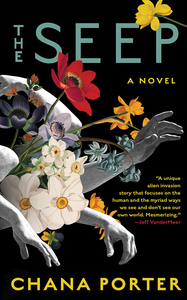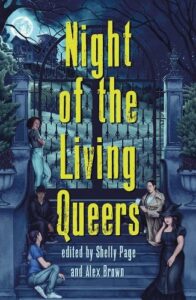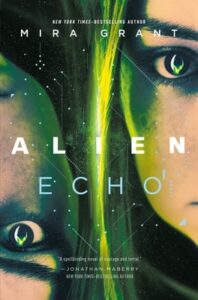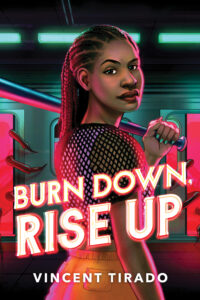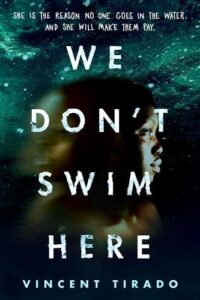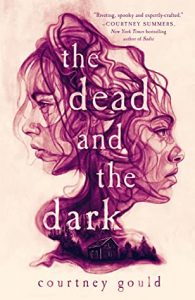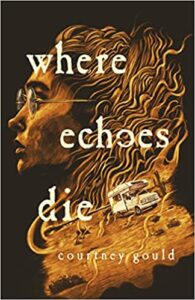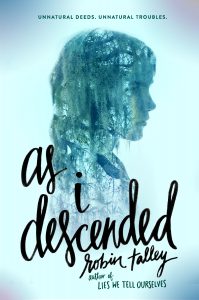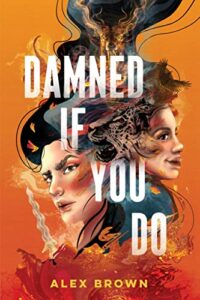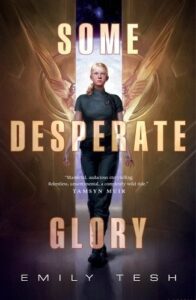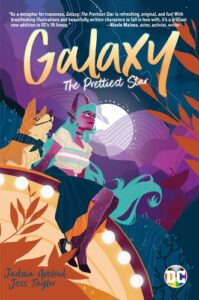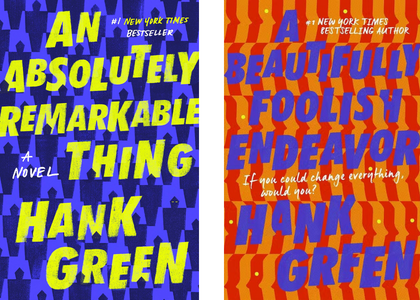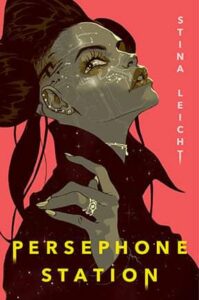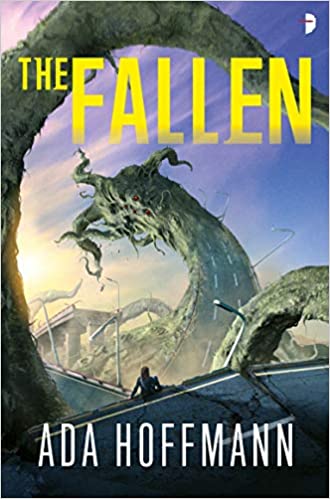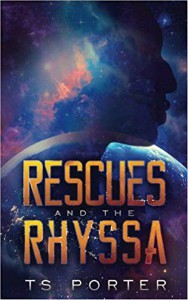Buy this from Bookshop.org to support local bookstores and the Lesbrary!
This review contains spoilers.
The Seep might be one of the most refreshing takes on alien invasion I’ve ever read. This novel follows Trina FastHorse Goldberg-Oneka, a middle-aged trans woman, as she and her wife Deeba, along with almost everyone else in the world, are forced to live with something called the Seep. The Seep is an alien unattached to concepts like linear time and physicality that invades humanity and simply… makes life perfect. People can alter their appearances at will, ingesting the Seep feels like getting high, and there are restaurants that only give you good-tasting food that will help your body out, along with a bunch of other seemingly-awesome changes. After a few years of living under its power, Trina doesn’t love the Seep as much as her friends do anymore—and then her wife Deeba decides she wants to be turned back into a baby and give up the life they’ve built together.
Trina does what I think any of us would be tempted to do in that situation: she drinks herself half to death. Living under the Seep, though, means that her actions don’t go unnoticed, and what really kicks the story off is someone coming to Trina’s place and telling her that she’s hurting the entire community by not taking care of herself or her house. This sends her on a mission to hunt down an old friend of hers and to save a boy she meets along the way who comes from the Compound, one of the only places untouched by the Seep.
What I really liked about this story is how deep Trina is in her grief. It’s been about five years since Deeba left, but the way Porter writes Trina is like it happened yesterday. Deeba isn’t dead, not really; she is a small child being raised by a lovely couple far away from Trina. However, to Trina, it’s like she is, and that comes through spectacularly through Porter’s writing. Trina hasn’t moved on at all in those years after Deeba’s departure. She could move on: she could let the Seep erase her memory of Deeba, or she could let it change her feelings into something more manageable. But Trina is all about the old days and the old ways. She misses what art was back when humans still routinely felt things like pain and sadness, and she doesn’t get the appeal of having an all-knowing alien rooting around in her skull and changing her brain chemistry every second of every day of every week.
So when she meets this kid from the Compound who wants to know about the world outside and wants to join with the Seep, it’s like her brain finally has something to focus on that isn’t Deeba. It’s never really about the kid; in the end, Trina doesn’t really care about him, not like she tries to convince herself that she does. It’s a distraction from the pain she has carried with her since Deeba’s departure. All of it leads her to a friend (ex-friend) who goes around wearing his dead boyfriend’s face and pretending that he is a different race than he actually is. It takes Trina finding him again and confronting him for any real change to happen within her, and Porter goes exactly where you want her to go when Trina is shoved back into the past for a little while. She watches her wife from the same place she watches her in a scene from the beginning, caught in a memory, and the pain of losing that part of her wife hits Trina all over again. She’s been lost in her grief, and she has been for a while now. This is simply when she finally realizes it.
Trina’s conversations with the Seep are also a high point of the book. The Seep talks to Trina by changing the writing on a pamphlet she is given, then by changing the writing on a pamphlet that the boy drops, and then it actually speaks to her from the pamphlet cover and heats up in her hands when it wants to tell her something. Trina tries to get the Seep to understand that sometimes humans need to be able to choose bad things or things that hurt, but it takes the Seep a long time to grasp that point. If the Seep isn’t there to make life perfect and wonderful, then what is it for? The relationship between Trina and the entity known as the Seep is the thing that drives the story onward when Trina’s previous excuses and distractions run a little thin. In one of the most moving scenes of the book, Trina and the Seep talk to each other in a sort of talk show style set-up where every person in the audience is a different iteration of Deeba. Deeba left her because of the Seep; we know that, the story literally begins with that. Seeing it laid out so viscerally, though, with the Seep wearing somebody’s face and talking to Trina while every version of Deeba she ever knew laughs out at her from the background really made it hit home. That’s what this sort of grief is like, and Porter captures it so perfectly. I’ve been thinking about that scene for days since I put the book down. It takes having this conversation with the Seep for Trina to decide to try to move past everything with Deeba, and the story ends optimistically with Trina beginning to take care of herself and the house she used to share.
I know I’m a little late at finding this story (it was published in 2020), but I’m just glad I found it when I did. It’s moving, thought-provoking, and exactly the sort of thing I’m into. The only reason I’m not giving it five stars is because there are a couple plot issues it took me a minute to get past (she’s on a Do Not Admit list to her ex-friend’s shows, but she’s able to go in anyway?), but other than that, I really liked it. The way that the novel is bookended by “Tips for Throwing a Dinner Party at the End of the World” is really cool too and ties the story together. I would absolutely recommend this.
Triggers warnings for: death, slight suicidal ideation, loss of bodily autonomy, and drug use (kind of).

